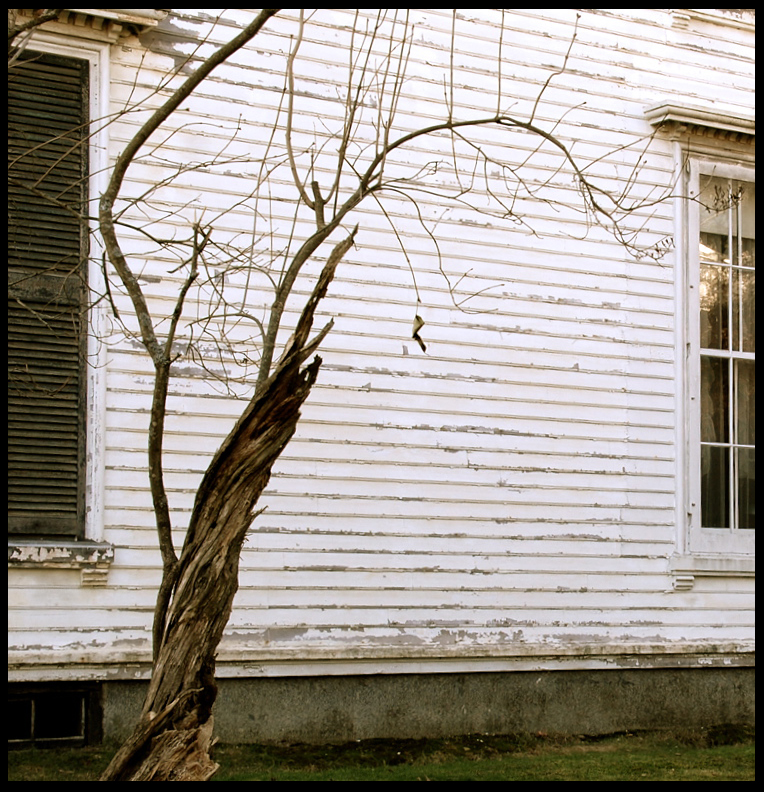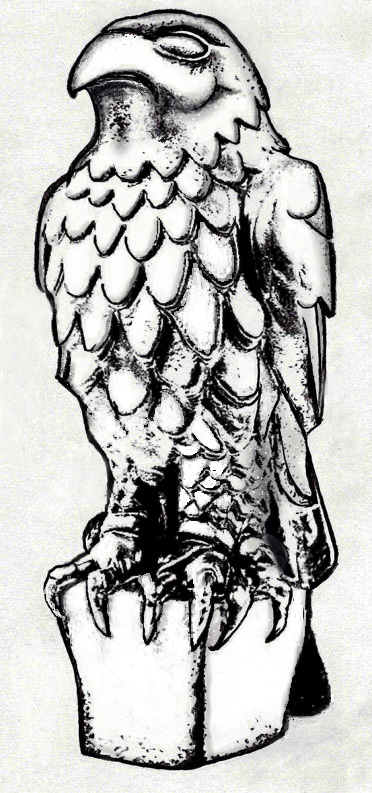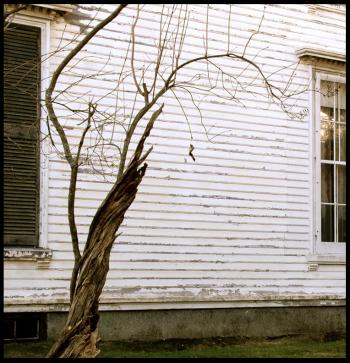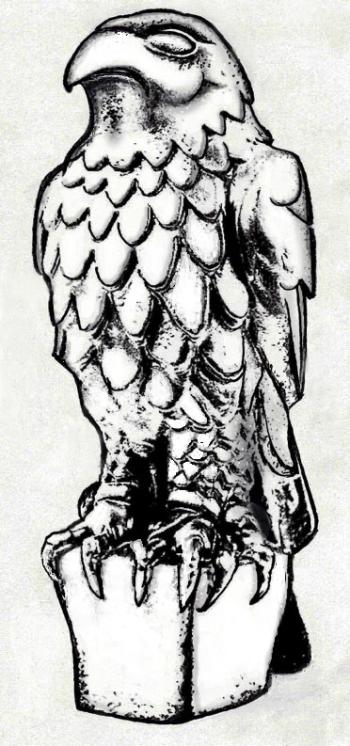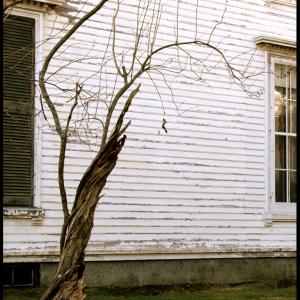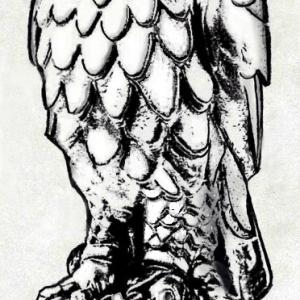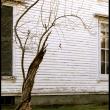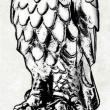Perfect moments, Domino and downed limbs
I almost lost my entire right arm in Hull, Quebec, on a glorious summer afternoon. This might not mean so much to you until you realize that at that time, my mid-20s, I had already been an artist for more than 10 years, drawing and painting obsessively, daily, so my arm was everything to me; I would continue to need it for the next 30 years.
The moment I almost lost my arm was one of the most idyllic, that soft golden sunlight of a slackening day vividly setting off even the dull architecture of Hull, the shadows full of Impressionist blue and purple; everything and everyone seemed to be hitting all the right notes.
I was sitting on the passenger side of the huge bench seat in a 1964 Dodge Coronet station wagon, nicknamed Domino for its two-tone paint. A pretty Canadian girl was settled on my lap, and a second girl, just as pretty, was sandwiched between the driver and myself. We had been drinking beer after hanging an art show all day in a downtown gallery in Ottawa, Ontario, and we had crossed the river to buy Labatt’s 50 ale, my recommendation, which was only available in Quebec.
Children played in the street, riding bicycles and skateboards, laughing, giggling, chasing each other at tag as parents and grandparents watched and talked on steps and porches, quarts in twisted paper sacks.
As Domino slowly approached the corner grocery store that was bound to sell my beloved ale, I'm not certain if I had ever been happier, not even sure why such overwhelming emotion filled me.
Although the girls were basically strangers, they were so polite and charming in that Canadian way that everything seemed possible, the future as open and dreamy as the cloudless sky. Domino's tape deck was playing Buddy Holly's That Will Be The Day, which further intensified that feeling of pure summer joy, my arm hanging out the rolled down window, my hand tapping rhythm on the warm metal of the door. Maybe I should have paid more attention to the lyrics of the song.
Out of the corner of my right eye, I sensed a flash of black. Reacting on an instinct that my conscious mind would never remember, my right arm lifted, grabbing the girl on my lap as I attempted to throw her across the bench seat away from the blast of darkness. My chest and arms covered and shielded her back, pushing the center girl awkwardly into the driver.
The other car rammed Domino so hard that the transmission broke loose from the engine block. Much of the glass in the wagon shattered; the windshield, made of safety glass, a spider web of fragments. The music stopped. If Domino hadn't been fortified with a massive frame and door pillars, its panel steel as thick as Detroit had ever managed, things would've ended very differently. We were in the wrong place at the wrong time but in the right car.
Most people on the street knew the driver. Why he leapt from his car and ran was inexplicable.
We saw him later at the police station, his face severely battered, his arm in a sling. Apparently a lit cigar had fallen into his lap as he approached the stop sign at careless speed. His car was his prize, something he washed and polished constantly, a souped up hot rod that was famous throughout Hull. When he recognized us at the station he merely shrugged and grinned, a tooth freshly missing. Somehow it only made the crash that much more harrowing; it would have been more bearable if there had been a villain.
The severely wounded Domino was towed back across the river to the house where we were staying, acquaintances of the gallery owner and the friend I had accompanied to Canada from Vermont. The girl who had been in my lap was the only human causality besides the hot rod driver. Her back had been slightly wrenched by my abrupt attempt to save her, and this only added to my feeling of despair and my deep sadness. How quickly emotions can invert.
Out of some bizarre confrontational impulse, I sat on the glass strewn seat of Domino and drank beer — we never did buy the Labatt’s 50 ale I had so desired — after beer in the deepening darkness, one lone street light on the corner. I couldn't seem to leave the wreck. Every so often one of the girls or my friend would come out of the house and talk to me through the broken window, urge me to join the party, please at least eat something, but I was immobile.
I felt responsible for the accident.
If I hadn't insisted on heading for Hull, nothing would've happened, was my feeling. Of course this wasn't true. Alternatively, we might have all died that afternoon in some other way. Life is random — but I hated this.
It seemed to me, superstitious as I have always been, that I had been too happy in that moment, let my guard down and thus been blindsided. And I kept staring at my arm, stretching it out in front of me, wriggling my fingers. I could almost feel the grill of the hot rod crushing it against the dull paint of the door and severing it at the shoulder. My arm! I needed it more that anything except my eyes in order to make art. If I hadn't sensed the peripheral blackness in that final instant, it would've been gone or, at the least, irreparably mangled. The paralyzing closeness of irreversible tragedy was too much for me.
Some of these thoughts were the maudlin result of no food and too much beer, but I instinctively felt I had to tussle through this to be free again. We must reject hopeful expectation and accept random events as they occur.
My wife and I watch world-class motorcycle racing known as MotoGP. One thing I have learned from these young riders is no matter what happens, after any calamity or disappointment, they all signal the camera with the same hand movement, the one where a finger spins like a wheel. It means: move on, what has happened is over, concentrate on what's next, on improving, on learning from the mistake but giving the setback no more emotion or time.
A few Sundays ago, we were about to watch a race we'd been looking forward to for weeks. The feed was being fed to our computer and our anticipation was high as a wet snow fell outside. We had seen these wet snows around Halloween before, as every Mainer had, and thought of them as beautiful if a bit early in the year to commit to winter. Even after the power flicked and went out once for a few minutes, there was no alarm, but by the next morning, after eight hours of no power, no motorcycle race, our yard appeared devastated.
The prized 100-year-old lilac with its half dozen 14-inch-thick trunks was mostly on the ground. The two similarly aged honeysuckles had fared no better, looking like giant squashed insects. The row of tree-form hydrangeas, which I had tended so diligently for 15 years, looked like broken paper umbrellas. Twenty-feet of spruce top lay in the snowy road along with half a red maple, which in its descent had knocked our cement statue of the Virgin Mary face down in the mud. Was God telling me something? Had I become too content and complacent after the success of my drawing exhibition a few months earlier?
I'm not a top motorcycle rider, so I sulked, which strayed toward the edge of depression. As a neighbor who gardens and tends her property to expert levels said to me: "I can't go look yet at mine. So sorry about your lovely trees. They have given me such pleasure over the years."
I thanked her for her sympathy as I sawed snapped hydrangea limbs, even attempting to duct tape split branches onto their trunks.
"Over a foot of snow?" I muttered to myself. "Gale-like gusts?"
You got to be kidding me! Snow so sticky that even staggering around with my pole saw the evening during the storm and whacking at the overload had accomplished virtually nothing excepting with my tall bent cedars. After all, our yard of trees had survived two ice storms. But it was the timing. For the other storms the trees had been prepared by the removal of all blooms; lilacs and forsythia and honeysuckle leafless. I had been blindsided once again as in Hull, Quebec. And I had reacted pretty much the same way. Thirty years and maybe I hadn't learned a thing? But I had.
I've accepted that I'm emotional, if I show it or not, and that it takes me time to process loss. And then I know I will get to work and fix what I can; a few days ago I managed to straighten another severely angled lilac with a come-along. Sure, my formerly 25-foot-viburnum looks like a broom handle stuck in the lawn. Sure I'll worry about the hydrangeas, but I'm also excited to see the potential recovery. It's all a part of life, this changed yard and contrast is what makes living so exciting. Without it, everything would loose its vibrancy and meaning.
Once the town workers had come by with their monstrous excavator and picked up the huge piles of discarded limbs and ravaged bits — the gray-bearded fellow who operates that beast is so proficient he could probably relocate a bird nest without hurting it — I felt even better.
As I said to one of the guys with a rake: "Sorry for all the mess. But what was I going to do? After all, you can't eat it."
I paused; it wasn't easy to get a reaction out of these guys. "And you can't smoke it." That brought a genuine smile and maybe a hidden chuckle. I looked up to God and called her even.
Eric Green lives on the Maine coast with his wife. He was born in northern New Hampshire, rode freights across the country as a teenager, made his living as a visual artist for 40 years, and has written six novels, including LiveCell and Holed Up. His recent Time Diptych series of drawings were shown at the Dowling Walsh Gallery, and his painting retrospective is scheduled for August 2015.
Event Date
Address
United States

